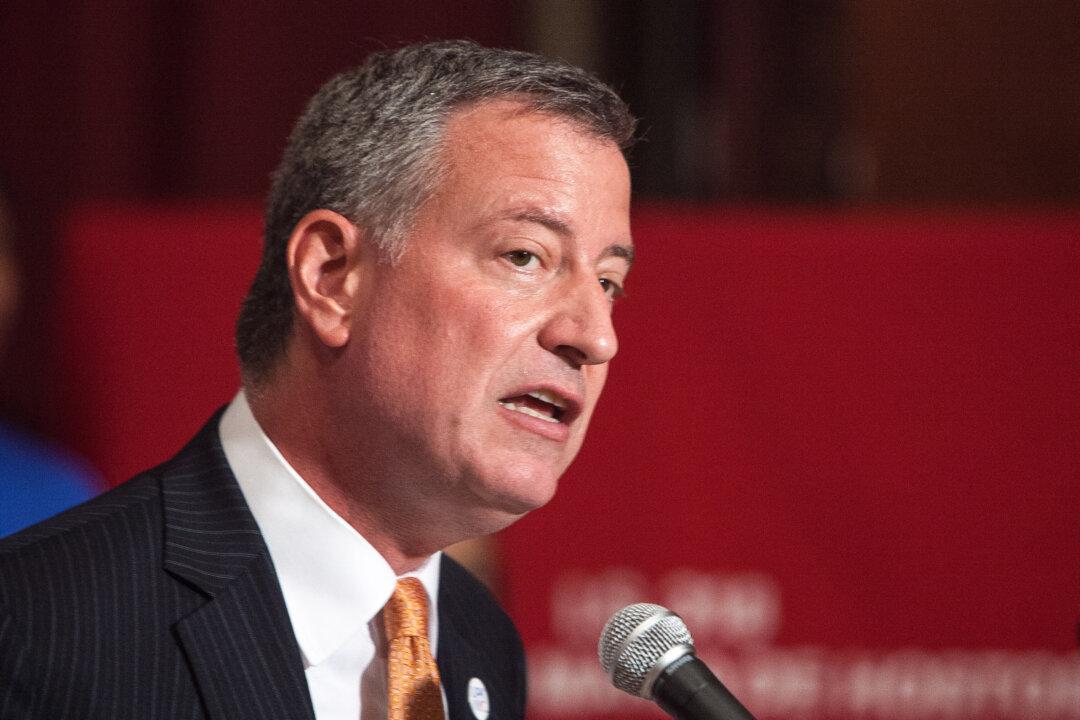NEW YORK—Mayor Bill De Blasio dodged responsibility and promised change responding to an extensive report on violence against Riker’s Island prison inmates published Monday by The New York Times.
The report focused on 129 cases of inmates seriously injured by correction officers last year, pointing out instances where excessive force may have been used.
De Blasio recognized “the current state of affairs is unacceptable,” but said “a lot of steps are happening” to improve the situation.
New Correction Department Commissioner Joseph Ponte is known for cutting back on the use of solitary confinement, a sprawling practice under his predecessor Dora Schriro.
Norman Seabrook, president of the Correction Officers Benevolent Association, a correction officers’ union, criticized Ponte’s appointment and said solitary confinement “is an effective tool that works.”
Critics say the practice of keeping a prisoner isolated for 20 to 23 hours a day prevents violence momentarily, but can lead to an increase in violence in the long term.
“Of course when inmates cannot interact with each other or with staff they simply cannot engage in violent behavior,” Stuart Grassian, a psychiatrist and researcher of solitary confinement, told Solitary Watch, an initiative against the practice. “But this does not mean that the problem of violence is thereby addressed. You can put a dog in a cage and beat it and starve it and kick it all you want. It certainly won’t be violent as a result. Until, that is, you open the cage.”
Grassian noted that it’s especially so for those diagnosed with a mental disorder. About a third of the 11,000 Riker’s Island inmate population and majority of those seriously injured by the prison guards have mental disorders.
The city’s budget addresses the mental health of prisoners with $32 million for treatment programs and more correction officers.
Dodging the Blame
The mayor was quick to point out the report “obviously focused on events that took place last year in the previous administration.”
Yet the report also noted a 30 percent increase in the use of force against inmates this year, after De Blasio took over.





